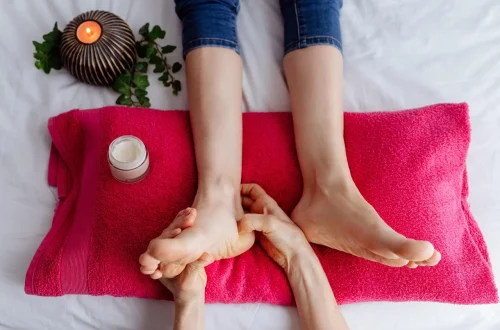
Exploring Body Positivity Among Male Black Celebs in the Spotlight
Body positivity has emerged as a significant cultural movement, fostering a more inclusive and accepting perspective on body image across various demographics. While traditionally associated with women, the conversation around body positivity has expanded to encompass men, particularly within the realms of celebrity culture. Male celebrities, especially those from the Black community, have increasingly taken center stage in challenging societal norms surrounding masculinity and body image. This shift is crucial, as it not only influences public perception but also empowers individuals to embrace their bodies irrespective of societal expectations.
In recent years, the media has witnessed a growing representation of Black male celebrities who openly discuss their experiences with body image, self-acceptance, and the pressures of conforming to traditional masculine ideals. These figures serve as role models, demonstrating that body positivity is not limited to any specific gender or race. By sharing their journeys, they inspire countless individuals to challenge their self-perceptions and embrace their unique physicalities. The evolving narrative around body positivity among Black male celebrities is a testament to the broader cultural shifts towards acceptance, diversity, and self-love.
In this article, we will delve into the experiences of Black male celebrities who have contributed to the body positivity movement, exploring their impact on societal norms and individual self-acceptance.
Breaking Stereotypes: The Role of Black Male Celebrities in Body Positivity
Black male celebrities play an essential role in breaking down stereotypes that have long dictated how Black men should look and behave. Historically, the media has portrayed masculinity as synonymous with being tall, muscular, and conventionally handsome. This narrow definition has often excluded those who do not fit these criteria, perpetuating a cycle of shame and insecurity.
Celebrities like Lizzo, while not a Black male, have paved the way for discussions that include all body types, encouraging men to do the same. Figures such as Chance the Rapper and John Boyega have openly embraced their bodies, countering the stigma attached to non-traditional male physiques. Their public acceptance of their body types sends a powerful message: that masculinity can be expressed in various forms, and self-acceptance is a strength rather than a weakness.
Moreover, these celebrities have utilized their platforms to advocate for a broader understanding of body image, emphasizing that self-worth is not dictated by physical appearance. By challenging the status quo, they inspire their fans to redefine masculinity on their terms, showcasing that vulnerability and self-love are equally important traits in men.
The impact of these celebrities extends beyond individual self-acceptance; it fosters a cultural environment where young Black men can feel empowered to embrace their bodies without fear of judgment. This shift is crucial in combatting the toxic masculinity often perpetuated in society, allowing for a more holistic understanding of what it means to be a man in today’s world.
Media Representation and Its Influence on Body Image
The media plays a pivotal role in shaping public perceptions of body image, particularly concerning Black male celebrities. Historically, representations in film, television, and advertising have favored a limited view of masculinity, often sidelining those who do not conform to these ideals. However, as more Black male celebrities gain prominence, they are reshaping the narratives surrounding body image.
Social media has emerged as a powerful tool for these celebrities to share their stories and connect with their audience. Platforms like Instagram and Twitter allow them to showcase their bodies, promote body positivity, and engage in discussions about self-acceptance. By doing so, they challenge traditional portrayals of masculinity and create a more inclusive space for dialogue.
For instance, actors like Michael B. Jordan and Idris Elba have gained attention not just for their talent but also for their willingness to engage in conversations about body image. Their posts often highlight self-love and acceptance, encouraging their followers to embrace their individuality. This kind of representation is vital; it signals to young Black men that they are not alone in their struggles with body image and that they can find strength in their uniqueness.
The impact of this representation extends beyond individual empowerment; it influences the media landscape itself. As audiences demand more diverse portrayals of masculinity, content creators are increasingly forced to adapt. This shift can lead to broader acceptance and understanding of various body types, ultimately fostering a culture where body positivity is celebrated.
Empowerment Through Authenticity: Celebrities Sharing Their Journeys
Authenticity is at the core of the body positivity movement, and many Black male celebrities have embraced this principle by sharing their personal journeys. These narratives are powerful because they resonate with fans who may be struggling with similar issues. By being open about their experiences, these celebrities humanize the struggle with body image, making it relatable and accessible.
For example, musicians like Jaden Smith and Lil Nas X have openly discussed their experiences with body image, challenging societal norms and expectations. Their willingness to be vulnerable creates a space for others to do the same, fostering a sense of community among those who feel marginalized by mainstream beauty standards.
These narratives often highlight the challenges faced in the industry, where pressures to conform to certain body types can be overwhelming. By discussing their own insecurities and triumphs, these celebrities not only validate their fans’ feelings but also inspire them to pursue self-acceptance. This empowerment can lead to profound changes in how individuals view themselves and their bodies.
Furthermore, the authenticity displayed by these celebrities encourages a broader dialogue about mental health and body image. As they share their struggles, they also advocate for the importance of seeking help and support. This emphasis on mental well-being is crucial, especially for young Black men who may feel the weight of societal expectations on their shoulders.
In this way, the journeys of Black male celebrities contribute significantly to the body positivity movement, pushing boundaries and encouraging a culture of acceptance and love for all body types.
The Future of Body Positivity in Celebrity Culture
The future of body positivity within celebrity culture appears promising, particularly as more Black male figures continue to step into the spotlight. As society evolves, so too does the understanding of body image, moving towards a more inclusive and accepting paradigm. This shift is increasingly reflected in media portrayals, as the demand for diverse representations grows louder.
Celebrities who embrace body positivity not only challenge existing stereotypes but also inspire the next generation to carry the torch. As young fans look up to these figures, they are more likely to internalize messages of self-love and acceptance, fostering a healthier relationship with their bodies. This cultural transformation is critical in creating a world where individuals are celebrated for their uniqueness rather than judged based on arbitrary standards.
Moreover, the rise of social media continues to influence how body positivity is perceived. Platforms that allow celebrities to connect directly with their audience facilitate conversations that might not occur in traditional media. Through these channels, celebrities can share their experiences, promote body positivity, and advocate for mental health, creating a ripple effect that extends far beyond their immediate followers.
As the body positivity movement continues to gain traction, it is essential for celebrities to remain authentic and committed to the cause. The more they share their journeys, the more they can inspire others to embrace their bodies and challenge societal norms. This ongoing dialogue is crucial for fostering a culture of acceptance, encouraging individuals to celebrate their bodies in all their forms.
In conclusion, the journey towards body positivity among Black male celebrities is crucial in reshaping societal perceptions of masculinity and self-acceptance. By sharing their stories and embracing authenticity, these figures not only inspire their fans but also contribute to a broader cultural shift towards a more inclusive understanding of body image.
*Note: This article is not intended as medical advice. For health-related concerns, please consult a qualified healthcare professional.*




